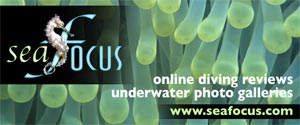- Home
- Directory
- Shop
- Underwater Cameras - Photographic Accessories
- Smartphone Housings
- Sea Scooters
- Hookah Dive Systems
- Underwater Metal Detectors
- Dive Gear
- Dive Accessories
- Diving DVD & Blu-Ray Discs
- Diving Books
- Underwater Drones
- Drones
- Subscriptions - Magazines
- Protective Cases
- Corrective Lenses
- Dive Wear
- Underwater Membership
- Assistive Technology - NDIS
- On Sale
- Underwater Gift Cards
- Underwater Art
- Power Stations
- Underwater Bargain Bin
- Brands
- 10bar
- AOI
- AquaTech
- AxisGo
- Backscatter Underwater Video and Photo
- BLU3
- Cayago
- Chasing
- Cinebags
- Digipower
- DJI
- Dyron
- Edge Smart Drive
- Eneloop
- Energizer
- Exotech Innovations
- Fantasea
- Fotocore
- Garmin
- Geneinno
- GoPro
- Hagul
- Hydro Sapiens
- Hydrotac
- Ikelite
- Indigo Industries
- Inon
- Insta360
- Intova
- Isotta Housings
- Jobe
- JOBY
- Kraken Sports
- LEFEET
- Mirage Dive
- Nautica Seascooters
- Nautilus Lifeline
- NautiSmart
- Nitecore
- Nokta Makro
- Oceanic
- Olympus
- OM System
- Orca Torch
- Paralenz
- PowerDive
- QYSEA
- Scubajet
- Scubalamp
- Sea & Sea
- SeaDoo Seascooter
- SeaLife
- Seavu
- Shark Shield
- Sherwood Scuba
- Spare Air
- StickTite
- Sublue
- Suunto
- SwellPro
- T-HOUSING
- Tusa
- U.N Photographics
- Venture Heat
- XTAR
- Yamaha Seascooter
- Youcan Robot
Sulawesi

The island (formerly know as Celebes) has a distinctive shape, dominated four large peninsulas. The central part of the island is ruggedly mountainous, such that the island's peninsulas have traditionally been remote from each other, with better connections by sea than by road.
As the largest city in the northeren region, Manado is a key tourist transit point for visitors. Ecotourism is the biggest attraction in Manado. Scuba diving and snorkelling on the nearby island of Bunaken are popular attractions. Bunaken is part of the Manado Tua Marine National Park, which has some of the highest levels of marine biodiversity in the world. Other places of interest are nearby Lake Tondano, Lokon Volcano, Klabat Volcano and Mahawu Volcano.
The Celebes Sea is home to a wide variety of fish and aquatic creatures. The tropical setting and warm clear waters permit it to harbor about 580 of the world's 793 species of reef-building corals, which grow as some of the most bio-diverse coral reefs in the world, and an impressive array of marine life, including whales and dolphins, sea turtles, manta rays, eagle rays, barracuda, marlin and other reef and pelagic species.
Images courtesy of Indonesian Culture and Tourism
In the Directory
Photos

- Traditional house

- Reef scene

- Boat construction
Climate
The climate in North Sulawesi is generally humid of equatorial tropic region. There being two seasons within this region namely the west-monsoon (from October to March) and the east-monsoon (from May to August). The west-monsoon is wetter than the east-monsoon. The average temperature is 27 degrees C. The frequency of strong wind is relatively low.
Underwater Recommendations
The Bunaken Sea Garden (North Sulawesi): About half an hour by a motorized outrigger canoe from Manado, Bunaken island is a veritable paradise for snorkelers and scuba enthusiasts. The coral reef off Bunaken island is particularly good for that and shouldn't be missed while you're in this region. The drop-off wall at Liang Cove is rare in the world, as it's described by international divers as being spectacular with caves, gullies, and caverns harboring an immense wealth of marine life. The water averages a balmy 28 degrees C and visibility is sensational (over) 30 m. The Bunaken sea garden is rich with colorful tropical marine life.
Sea Garden of Hari Island (South East Sulawesi): In the Indonesia language (Bahasa Indonesia), hari means daylight. Because of the way the sun's rays reflection the water of the sea surrounding this island, the local people call it the Island of Daylight, Pulau Hari. Swimming, boating and other marine sports find a natural home along these shores. Diving to view colorful fish in a sea garden setting of coral is a popular activity.
In the Directory

 Pelagian Dive Yacht
Pelagian Dive Yacht
Feel like you're on a private yacht charter with just ten guests. Pelagian cruises the outer reaches of the exquisite Wakatobi region.
 Wakatobi Dive Resort
Wakatobi Dive Resort
Wakatobi Dive Resort has some of the most pristine reefs in Indonesia at its doorstep. Protected by their Collaborative Reef Conservation Program, Wakatobi is the #1 choice for sophisticated divers.
Shopfront
-
 X-Ray pdf Dive Magazine
X-Ray pdf Dive Magazine
- X-Ray Mag is an international dive magazine. It is complimentary and published in pdf-format.
- $AU 0.00
Articles
-
 Gangga Island Sulawesi - Diving in Paradise
Gangga Island Sulawesi - Diving in Paradise
- Imagine paradise: blue skies, amazing food, flowers, happy people, world class diving, smiles all round, a bit of pampering and a wet-edge pool looking out over the volcanoes on the North-Sulawesi mainland.
-
 Kakaban, Primordial Sea
Kakaban, Primordial Sea
- Drawing a deep breath, I dive into a primordial sea. My vision opens to a sea of jellies swimming gracefully in a green aquaria, visibility remaining clear at 5m as long as I am careful not to touch bottom and stir up the silt accumulated over the last 19,000 years.









